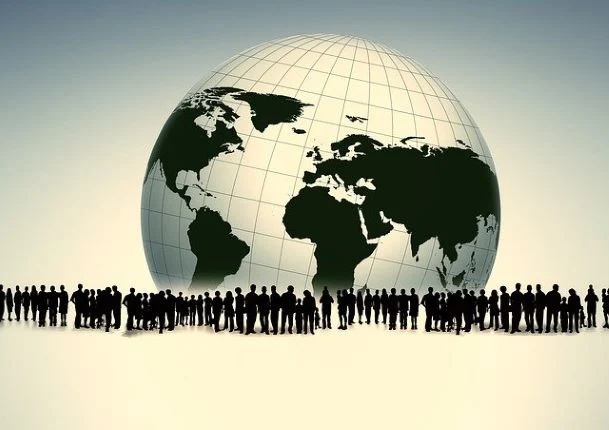Education in the market competition
Why does globalization
constantly force us to compete? Why does globalization encourage educational activities into corporate activities? Why is the democratization of education,
as it were, more determined by free-market competition? Such questions are a
sign that the turmoil we face globalization as described above should not only
stop at accepting situations with compulsion, but That chaos should be able to
be overcome by consciously mapping out what the inevitable will of
globalization is.
 |
| Gerd Altmann from Pixabay |
In my view, generally, globalization requires: (1) that all people's activities are in the world system. Therefore, every action, policy, and activity of people is always integrated with the demands of 'must be within the world system'. That is why globalization is a hegemonic, imperialistic, colonialist force, where every activity is seen as part of the activities that are within international or global scale. (2) That the activities of mankind can be carried out through the means of multinational corporations. Because the activity of the multinational corporate model became an icon and played an important role in the modern globalization process. Educational activities are carried out within the framework of an international scale because they contribute significantly to the progress of the world through the expansion of cultural influence, dissemination of knowledge and understanding, including science and technology.
The
competition of the education market gained a very important position.
Attention and recognition of market demands become inevitable. We are now entering
the era of 'global knowledge wars', which underlie themselves on the principles
of 'survival of the fittest'. Our education world must participate in open
competitions with such foundations above. Otherwise, then our educational
institutions will be 'eaten away' by the new tide of colonialism in a more
modern, sophisticated wrap.
The
options for entering such market competitions are very limited. Even the
options that have been available already fall into the category of the
hegemonic grip of global values such as the same standard (read:
international) in the implementation of education, in the quality of
educational outcomes, in 'standing academic'. As a logical result of this
education market competition, the world of education became a 'going business'.
All educational production activities must be managed with business principles
because education is placed as an investment that will generate an economic
return for everyone who is use educational services to improve their quality of
life.
In
the atmosphere of the market competition as outlined earlier,
education is no longer intended as an important medium to overcome polarization
in society. Even polarization, and perhaps segmentation within society, can be
established, produced by educational institutions. The emergence of
excellent schools, favorite, international standard schools, international
schools, indirectly builds segmentation and polarization in society. Such
schools can only be entered by those who come from socially and economically
capable groups. Those from the underprivileged, poor, both socially
and economically, have a slim chance of being able to participate in such
free-market competition in the world. upstairs. They must be willing not to be
able to enter the type of superior school, international
school as above because they cannot qualify competitively. determined by
corporate policy.
Hypothetically,
I suspect, that free-market competition conducted in our education world, can
lead to the emergence of educational institutions based on polarization.
Stratification, especially concerning the establishment of new social classes
based on 'who can afford the cost of education (such as the school of the
rich, the school of the people nobles, elite people's schools, poor people's
schools, city people's schools, village people's schools, and so on); the
establishment of educational institutions based on ethnicity (such
as Chinese schools, Indian schools, white schools, Malay schools,
and so on); The establishment of educational institutions based on
religious beliefs (such as Islamic schools, Catholic schools, Christian
schools, Buddhist schools, Hindu schools).
If
the above hypotheticals can be a measure of the tendency of every educational
activity in the current era of globalization, the question is why the
democratization of education that we are buzzing about has not been able to
break the brakes on the polarization of stratification as above? This
question is not something that can be answered easily. Because, if
democratization is identified with free competition in the free market, while
our educational conditions and situation are still left behind, then what then
happens.
The
competition through democratization will be turned into the new colonial activity
of our educational world by the hegemonic forces of education
coming from outside. Meanwhile, our education world will experience
a total defeat in the flow of such free-market education competition.
Tragically, our educational political policies follow the flow of such
free-market competition, without paying more balanced attention to
national preferences.
Post a Comment for "Education in the market competition"